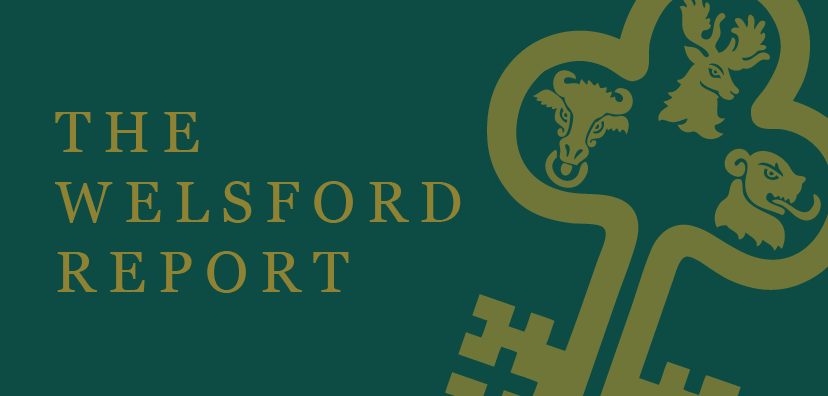Is Investing in Palm Oil a Slippery Slope?
Palm Oil is contained within half of all packaged goods that can be bought in your local supermarket, however its production has been linked to serious environmental, social, governance and ethical issues.
Plantations are built on deforested land, destroying local biodiversity (destroying the habitat and threatening the existence of local species, such as tigers, rhinos, elephants and the increasingly endangered orangutan) and human communities, forcing indigenous peoples from their lands, as well as releasing vast amounts of Carbon Dioxide into the air.
The plantations themselves have a massive problem in the way of labour abuses, with several NGOs highlighting the issues of forced labour, child labour, gender discrimination, exposure to toxic chemicals and union busting.
Plans to increase sustainability have fallen short of their aims
The Roundtable on Sustainable Palm Oil (RSPO) was founded in 2004 with the aim of increasing sustainability within the Palm Oil Industry, in response to the issues mentioned above.
However, it has been made clear that the guidelines set by the RSPO in their ‘Principles and Criteria for the Production of Sustainable Palm Oil’ fail to ensure that the palm oil produced by their members is truly sustainable.
Greenpeace’s 2013 report outlined the main issues regarding the RSPO: forest conversion is not totally banned; greenhouse gas emissions are not limited; ‘deliberate use of fire for land clearance’ is banned but the clearing of rainforest and the clearing and draining of peatland—which leads to forest fires—are not prohibited, and “RSPO members can freely trade … oil produced by non-members who have made no sustainability commitments”.
Labour abuses were uncovered in RSPO certified plantations by Amnesty International in 2016, who published a report revealing “serious human rights abuses” in RSPO certified plantations, with “forced labour and child labour, gender discrimination, as well as exploitative and dangerous working practices”.
Other recent reports have also made similar findings in other RSPO certified plantations, such as one by the Rainforest Action Network (RAN), OPPUK and ILRF, who found “human rights and labor rights abuses” in Indofood plantations, with the “violation of more than 20 Indonesian labour laws”.
Ethical governance has fallen by the wayside, and workers are shouldering the burden
On top of the obvious Social and Ethical issues, these labour abuses also highlight a serious governance issue insofar as proving that companies lack transparency and the RSPO lacks the authority to enforce its already weak standards. The joint RAN, OPPUK and ILRF report stresses that “the RSPO standard — or its Principles and Criteria — and its auditing and enforcement mechanisms have failed to protect workers”, discussing the failure of the audits to uncover abuses and the failure of the RSPO to act and suspend non-compliant members.
The report found many grievances with the RSPO auditing process, finding “insufficient audit methodology”, “heavy reliance on the heads of yellow unions”, “announced audits”, “coaching and intimidation of workers”, “incentives for auditors to cut costs”, “conflict of interest[s]”, and a lack of expertise on labour issues.
One worker was quoted as saying “every time [the RSPO] come, we are not [called to] work, or if we are, we are hidden away, concealed”.
The RSPO’s failure to resolve a complaint filed by the authors of the report in 2016, allowing Indofood to continue the sale of “RSPO certified palm oil to the marketplace without sanction”, demonstrates the lack of ability to enforce their Principles and Criteria, but is best summed up by the words of one worker: “Lonsum receives RSPO certification. … In reality they get certified but they don’t follow the P&C. … How much benefits has [Indofood] gotten from being a member of the RSPO? But can you imagine that workers here are still casual. There is still social inequality here. There is still cheap wages here. There are still violations here”.
New commitments by the RSPO may never be enough to ensure true sustainability
In response to these revelations, the RSPO has made improvements with the launch of their new Labour Task Force and a commitment to “ensure consistency with the Complaints System in relation to development of standards and procedures for investigation and response to ensure worker protection, anonymity, privacy and non-reprisal as well as make relevant recommendations as and when requested”.
However, in their report, the RAN, OPPUK and ILRF noted that it has been called “into question if [the RSPO] can ever become a reliable auditing system for labor rights” and that “It remains to be seen if reforms can be put in place quickly enough to move this complaint forward in a manner that sanctions a non-compliant RSPO company or resolves the ongoing violations”. Additionally, there has been no update to the RSPO Principles and Criteria since 2013.
It would therefore appear that the RSPO scheme falls short in the following regards: existing Principles and Criteria are not strong enough to ensure sustainability, audits fail to uncover violations to standards, and sanctions are not (consistently) made against offending members.
However, one of the largest issues with the organisation is its claim to sustainability, and allowing for the use of the ‘sustainable palm oil’ label to be applied to its members products, despite this not being assured.
In our opinion, based on the evidence we have reviewed, RSPO seems to be dominated by palm oil producers with limited incentive to change. We feel they need to engage with greater levels of independent scrutiny.
“Progressive palm oil producers” could be a viable solution
Due to the failure of the RSPO to embrace this level of scrutiny and set higher standards of sustainability and compliance, the Palm Oil Innovation Group (POIG) was set up by some of the RSPO members and NGOs, aiming to break “the link between palm oil production and the destruction of forests and peatlands, the exploitation of communities and workers, and climate change”.
The group was founded by “progressive palm oil producers” and several NGOs (including Greenpeace, RAN and WWF) and sets out an ambitious charter which establishes truly sustainable standards that its members must follow.
The initiative also conducts audits, to ensure its members are following the POIG Charter, which are fully accessible by anyone, stating that “Independent third-party auditing of compliance is an essential element to ensuring the credibility of voluntary sustainability certification schemes”.
The NGO involvement in the scheme ensures a degree of third party verification and a number of measures have been implemented to increase the chance that the audits uncover any violations, and future measures have been planned to further increase this.

Through email correspondence with Ayres Punchard, the POIG outlined their audit procedure, discussing how members are independently verified by a qualified (both in terms of accreditation and “competence in auditing of palm oil plantations”) and POIG approved third party auditor.
Grower members have to be verified by a “third-party verification body … within their first year of membership, and on an annual basis thereafter”. It was stated that “if a member … is not able to pass the third-party verification, the POIG Organising Committee will review their membership status and proceed with a decision on suspension or exclusion” and, following audits, a recommendation would be made “concerning the Verification status of the Grower”.
The group stated that “any failures against major indicators must be brought into compliance”, with a “response and action plan from the auditee to address both major and minor non-compliances [to] be sought before the audit report finalisation” and then correct the failures through “verified changes in on the ground or sufficient progress via the action plan”.
An emphasis was placed on the idea that the charter is designed only as a baseline and the true focus is to innovate further. The group’s plans to improve their standards are highly ambitious and will resolve the remaining uncertainties around auditing procedures that were outlined by the joint RAN, OPPUK and ILRF report, with their ‘Verification Audit Guidelines’ due to be released later this year. However, already the group has begun to apply the recommendations made by the joint RAN, OPPUK and ILRF report.
It must be stressed that by investing in unsustainable palm oil, including some certified by the RSPO, investors are implicated in the possible extinction of species of local animals, the displacement of indigenous people, massive human rights and labour abuses, and climate change. In our view, the RSPO standard is unreliable and ultimately cannot be trusted to ensure sustainability. Investing in unsustainable palm oil is truly unethical.
Linked websites were accessed before the 1st February 2018, any additional sources are available on request. Enquiries and questions relating to this report should be sent to: chriswelsford@ayrespunchard.co.uk

